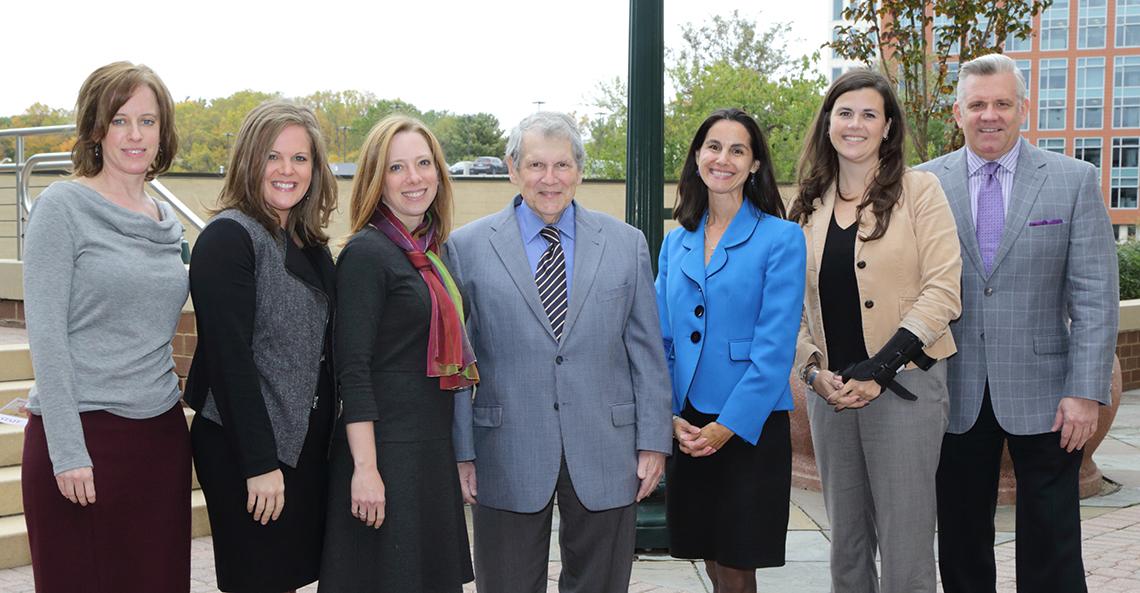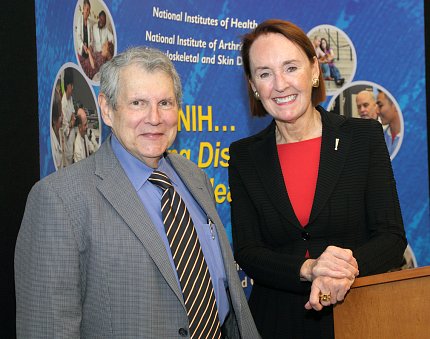NIAMS Coalition Gathers for Outreach, Education

More than 50 representatives of the NIAMS Coalition recently attended its biennial Outreach and Education Meeting: Creating Connections for Science. Attendees learned about the programs and opportunities available at NIH and NIAMS and exchanged ideas about how to effectively collaborate with the institute and with one another. The Coalition is a group of more than 90 professional and voluntary organizations concerned with the NIAMS portfolio.
NIAMS director Dr. Stephen Katz described how collaborative research, conducted among NIH institutes and through public-private partnerships, has a synergistic effect on advancing medical research. He noted the progress made in rare disease research, emphasizing its importance in providing greater insight into the mechanisms and treatments for common diseases. He also reiterated that NIAMS and NIH investments in basic research frequently serve as the foundation for future treatments, citing NIAMS scientific director Dr. John O’Shea’s role in discovering the signaling pathway that eventually paved the way for a new treatment for rheumatoid arthritis.

Mary Woolley, president of Research!America, offered the latest public opinion research on the importance of science in public policy. Despite the apparent lack of scientific understanding among the public, people want their political leaders to have basic scientific knowledge. They also want public policy to be based on sound science and are willing to share their health information to improve patient care and advance medical research.
Attendees learned from Office of Research on Women’s Health director Dr. Janine Clayton about NIH’s efforts to require that sex variables be factored into all aspects of research—from basic to clinical—to enhance scientific rigor and transparency and ultimately to ensure that both women and men get the full benefit of medical research. This, Clayton emphasized, is an essential step toward personalized medicine.
Breakout sessions covered topics such as leveraging resources to improve research opportunities; policies to enhance clinical research; collaborations to foster innovative research and training; and best practices for sharing health information online.
The meeting concluded with a presentation by Dr. Gwynne Jenkins from the NIH Office of Science Policy. She introduced the NIH Precision Medicine Initiative Cohort Program, an effort to recruit 1 million or more people to study their genetics, biospecimens and factors such as lifestyle habits and environmental exposures, to better understand the variables that contribute to health and disease. Jenkins discussed the program’s emphasis on fostering open, responsible data-sharing among researchers, coupled with the highest regard for patient privacy. The program will also ensure that participants have access to and control over their own data and how it will be shared.
“The Coalition leads efforts at the federal level to promote and educate all stakeholders on the importance of the research funded by the NIAMS,” said Coalition co-chair Mary Wheatley of the Rheumatology Research Foundation. “There is no end to the collaborative opportunities that exist between the NIAMS Coalition and its member organizations.”—Mimi Lising
